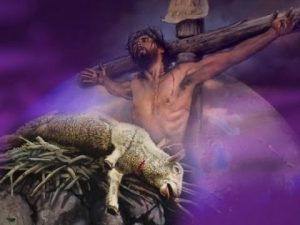Matthew 5:17
”Do not think that I came to destroy the Law or the Prophets. I did not come to destroy but to fulfill.”
(The New King James Version of The Holy Bible, Thomas Nelson Inc., Nashville, 1999.)
Firstly, one cannot see that the text using the word law, means the Ten Commandments.
Many Christian denominations say that the law was fulfilled and you do not need to hold the Ten Commandments anymore. This is just speculation and does not agree with the whole of the Bible.
When one reads the text in a right exegetical way, one has to find out what the words “law and prophets” mean. One also needs to find out what the word “fulfilled” means.
Does the word “fulfilled” mean to do away with, discontinue, abolished, cancelled, absolved, etc.? No it does not mean any of these definitions or explanations. Why? Because Jesus said himself in the same verse that he did not come to destroy the law or the prophets.
What does the citation “Law or the Prophets” mean?
In the Greek-English Lexicon of the New Testament, written by Walter Baur. The Koine Greek language was the original language the New Testament was written in. Walter Baur states, “The Holy Scriptures of the Jews (the Old Testament) are referred to as a whole “the Law and the Prophets.” ((1))
The following texts in the New Testament refer to the “Law and the Prophets” as the Old Testament, which was read in the synagogues each Sabbath.
Matthew 7:12. Therefore, whatever you want men to do to you, do also to them, for this is the Law and the Prophets.
Matthew 11:13. For all the prophets and the law prophesied to John.
Matthew 22:40. On these two commandments hang all the Law and the Prophets
Luke 16:16. The law and the prophets were until John. Since that time the kingdom of God has been preached, and everyone is pressing into it.
Acts 24:14. But this I confess to you, that according to the way which they call a sect, so I worship the God of my fathers, believing all things which are written in the Law and the Prophets.
Acts 28:23. So when they had appointed him a day, many came to him at his lodging, to whom he explained and solemnly testified of the kingdom of God, persuading them concerning Jesus from the Law of Moses and the Prophets, from morning till evening.
Romans 3:21. But now the righteousness of God apart from the law is revealed, being witnessed by the Law and the Prophets.
Conclusion
The phrase “the Law and the Prophets” means the Old Testament Bible, which was used by the Jews.
Jesus Christ fulfilled all the prophecies in the Old Testament referring to the Messiah.
It is impossible to say that Jesus Christ abolished “the Law and the Prophets” meaning the Old Testament Bible. Jesus did not abolish the Old Testament, but fulfilled everything that was written about him in those books.
- Walter Bauer, A Greek-English Lexicon of the New Testament and Other Christian Literature (Chicago: The University of Chicago Press, 1979), 543.
